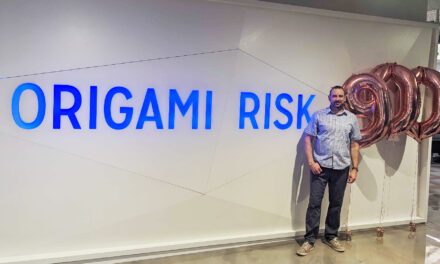
Propane pro: Ariaratnam named to national committee studying safety of pipeline infrastructure

Above: Samuel Ariaratnam, a construction engineering professor and program chair, was appointed for a 16-month term to serve on national committee studying the safety of the nation’s propane pipeline systems. Photographer: Tim Trumble
Six million American households rely on propane gas to heat their homes and water, to dry their clothes and to barbeque their pork chops.
Farmers use propane to heat livestock housing and greenhouses, dry crops and to power farm equipment and irrigation pumps.
Many businesses employ propane to power equipment ranging from forklifts to electric welders.
Transporting this fuel to homes and establishments across the United States requires an elaborate system of storage tanks and pipeline facilities. And since this volatile gas can displace oxygen to cause asphyxiation and is highly flammable and explosive — the safety of these systems is an imperative focus.
If the gas is allowed to pool in an area, a discharge of static electricity can be enough to cause an explosion.
Construction Engineering Professor and Program Chair Samuel Ariaratnam was recently appointed for a 16-month term to serve on a United States’ National Academies of Science, Engineering and Medicine committee studying the safety of the nation’s propane pipeline systems.
The National Academies is comprised of the National Academy of Sciences, the National Academy of Engineering, the National Research Council and the National Academy of Medicine, and serves as advisers to government and public leaders.
Commissioned by Congress, the committee’s “Study on Propane Gas Pipeline Facilities” is part of the Protecting our Infrastructure of Pipelines and Enhancing Safety Act of 2016, known as the PIPES Act, signed by former President Barack Obama in June 2016.
The PIPES Act renewed the Pipeline and Hazardous Materials Safety Administration, the federal government’s pipeline safety overseers within the U.S. Department of Transportation. Agencies like PHMSA and the National Fire Protection Association play an important role in monitoring propane storage and transportation methods.
Delivering propane to consumers involves transferring the fuel to the tank’s site, safely transferring the fuel from the delivery vehicle to the storage tank, and storing the fuel on the site where it can be channeled to homes via service lines.
However, these pipeline systems greatly differ in size — consider the propane storage needs for isolated rural properties compared to a large metropolitan city. A problem arises when federal regulators don’t adapt their compliance protocol for smaller systems.
To this end, Ariaratnam and the committee will be studying the current regulatory framework, and making recommendations on possible modifications to reduce the compliance burdens of smaller systems — defined as 100 or fewer customers — while maintaining top safety.
“We have an opportunity to conduct a thorough study and to make recommendations concerning regulations, techniques and practices for propane pipeline systems,” Ariaratnam says.
Additional goals include reviewing techniques and best practices to ensure safe design, installation, operation and maintenance of these smaller systems; and examining the costs and benefits of the regulatory regime, as well as associated techniques and best practices.
The committee is composed of nine experts appointed by the National Academies. Members were drawn from academia, local and state government, and industry.
“It is important for academics to contribute to studies aimed at benefiting society. The opportunity to work with a diverse group of professionals is exciting,” says Ariaratnam.
From 2010-2011, Ariaratnam served on a National Academies’ committee and contributed to a book published by the National Academies in 2013 aimed at providing communities with guidance on underground engineering for sustainable development.
Propane-related fatalities, injuries and costs of property damage and loss have declined from 1987 to 2016. Ariaratnam is excited to play a role in continuing to decrease incidents and promote greater public safety across the country.



































